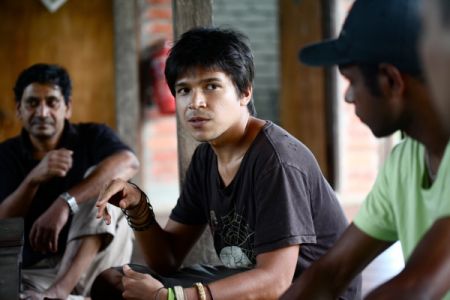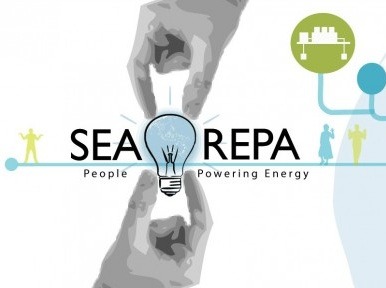Over 130 people from across 11 countries have flown into Sandakan, Malaysia for South East Asia’s first ever “game changing” gathering on Renewable Energy.
For the next week, Sandakan’s Rainforest Discovery Centre will host the inaugural South East Asia Renewable Energy People’s Assembly (SEAREPA). According to LEAP CEO Cynthia Ong, “it will be like no other gathering South East Asia has ever seen”.
For one, it’s not a conference. There will be no key note speakers, and at the moment, there isn’t even a program. Instead, the aim of the meeting is to create an open space where participants are able to share their “stories, struggles and solutions” with renewable energy experts from across the region.
“We’ve got people here focussing on land rights, renewable energy, wildlife ecology, journalism and many more, and we’re hoping to bring all these people together to share their experiences, and really learn from each other” – Nathanial Wynn, a renewable energy advocate with LEAP.
Already, renewable energy campaigners from Laos, Thailand, Bangladesh, Myanmar, Indonesia, the USA and Malaysia have begun to share their experiences with each other. Tonight, another wave of experts will arrive from the Philippines, Brunei, Vietnam, Cambodia, Indonesia, East Timor, and Singapore.
But you can already see how this open-space platform is going to play out. Grass-roots activists have already begun sharing strategies with government and policy experts. Academics and journalists have been discussing renewable energy issues across the region. The “assembly” hasn’t even begun but you can sense that exciting things are soon to come.
According to Martin Vogel, one of the team behind SEAREPA , “it’s already inspiring”.
“There is a sense of hope that renewable energy can not only assist with helping the environment but also assist to bring electricity to remote and rural areas that are looking to do things in a new way.”

However, the participants also come to SEAREPA with a unique knowledge of the challenges confronting them back home.
Ruangrit Pothipron works on Human Rights issues in Thailand, and he is hopeful that SEAREPA will give him the skills to reconnect the divide between Human Rights and energy:
“I think renewable energy is becoming central to the fight for Human Rights. There is now a hydro-electric dam proposed in Thailand that will force more than 100,000 people to be relocated. But the local people have no information about the project. And in my region, we don’t have any chances to exchange ideas with foreigners. So I want learn how I can campaign against the dam back in my home town, and to give local people more information”.
Myo Aung from Myanmar, is also at SEAREPA with the hopes that he will be able to propose a renewable energy alternative while his country is going through a period of rapid political and economic transformation:
“Now the local activists feel depressed. They try to protest coal-fired power plants and big hydro-projects, but the government just goes and plans another coal project. So I feel we need a new strategy to propose to the government. We need to be able to go to the government with a proposal for a renewable energy alternative”.
Over the next week, they will be joined with some of the most innovative renewable energy campaigners and implementers from across South East Asia. Time will tell if Myo and Ruangrit gain the skills they need to revolutionise energy production in Thailand and Myanmar. But I’m sure they won’t leave with a few new ideas, and a support network second to none.
SEAREPA hasn’t even begun, but the hope for a greener future certainly has.


